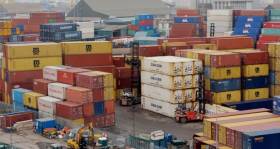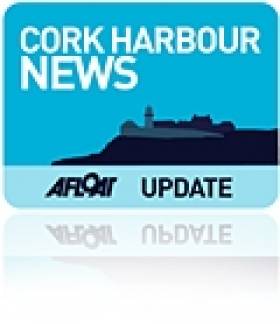Displaying items by tag: Irish State
Emergency Orders to Be Used by State for Brexit Checkpoints
#irishports - The State faces legal and logistical complications in managing a crash-out Brexit and is relying on emergency orders to bypass normal planning procedures to prepare, internal Government documents reveal.
As The Irish Times reports, work on a wide variety of transport issues in the event of a hard Brexit – ranging from assessing the legality of the State leasing ships to safeguard supplies, to reviewing whether Rosslare Port can take private investment – are disclosed in briefing papers prepared for Minister for Transport Shane Ross and released under the Freedom of Information (FoI) Act.
The Government has ruled out leasing ships, taking ownership of, or running, ferries in the event that the British “landbridge” route to mainland Europe is affected by Brexit because it “could give rise to claims of interference in the market” and complaints under State aid rules from shipping companies, the papers say.
To read more on what the Department of Transport has to say click here.
'Three Months to Clean Up Haulbowline' Says Europe
The Government has three months to start cleaning the toxic waste site in Haulbowline or risk court action by the European Commission, the Irish Examiner reports.
The site at the former Irish Steel plant contains an estimated 500,000 tonnes of waste, including toxic heavy metals and cancer causing materials, and has been blamed for the area's notoriety in having one of the highest cancer rates in Ireland.
Two petitions from local groups totalling 5,500 signatures were presented to the European Parliament's petitions committee in Brussels on Wednesday, according to The Irish Times.
Mary O'Leary, chair of the Cork Harbour Alliance for a Safe Environment (Chase), outlined to the committe that in spite of four reports between 1998 and 2005 highlighting the dangers of contamination from the site, the Irish State has failed to regulate it or take clean-up action.
Petitions committee member Jean-Francoise Brakland said he "fully agreed" with locals' concerns over the "dangerous mess".
He also commended Environment Minister Phil Hogan for understanding "the difficulties and the challenges of environmental implementation" but cautioned that "we are not going to wait for the next 10 years".
Brakland promised that if no real action was taken on Haulbowline after three months, the commitee would seek a court judgement againt the State.
The Irish Examiner has more on the story HERE.































































